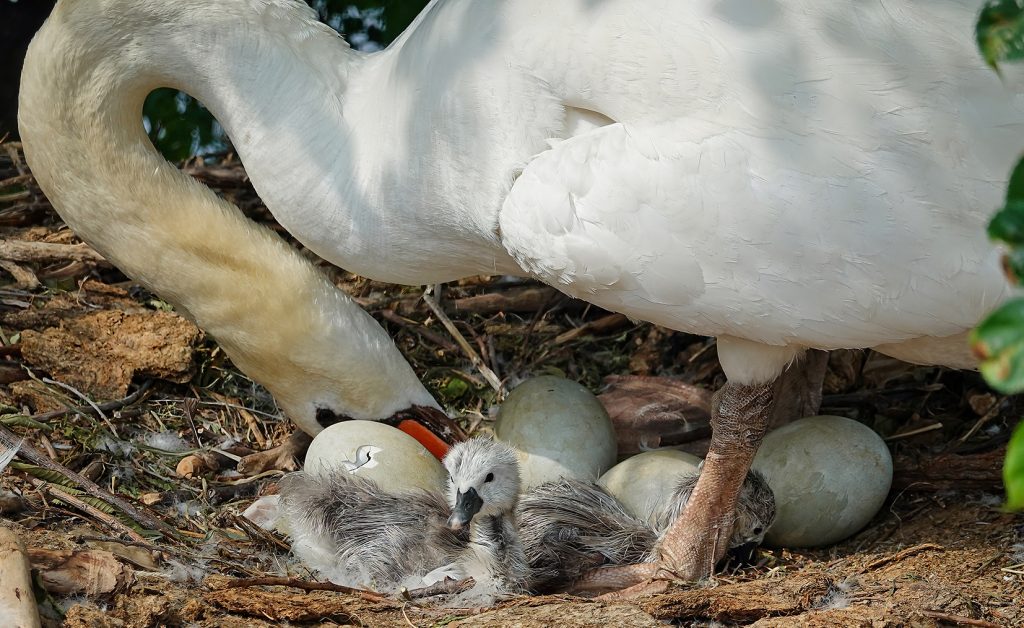Feature Blog Post by Bruno Clausi
An excerpt from the spring 2023 issue of Humber Happenings.
Visit link to read the full article on page 26 (opens in a new tab)
We are fortunate at Humber Bay to have two species of swans. Trumpeters are those with the all-black beaks, and Mute Swans have orange beaks.
Trumpeters are native to North America. They are being encouraged to nest in the region as part of restoration efforts after over-hunting nearly eliminated them more than a century ago, but they favour more pristine breeding areas and typically come this far south when seeking open water in the winter
Mute Swans were brought to North America from Europe in the mid-1800s but have nested in Ontario for more than 60 years and over 18 generations. They do well in urban environments and a few bonded pairs make Humber Bay their home. In the spring, part of the joy is watching the pen (female) and cob (male) start their family. At this time, they select a site, build a nest and lay eggs. Once all the eggs are laid, the pen will incubate them for about 35 days. She would lay on the nest continuously, rarely leaving even to eat. She gets weaker over time, so towards the end, the cob will stay close by to protect her and the eggs which typically hatch in May.
Mute Swan pairs bond for life and are very good co-parents, sharing the duties of raising their young. Through the summer months they teach them how to forage for food and how to preen to keep their feathers clean and waterproof. In the fall they teach them to fly and by winter, the cygnets, larger now with a mix of white and grey feathers, will fly off to start their own lives.
It is a pleasure to watch this life cycle at Humber Bay Park. Unfortunately, the Mute Swan population is being controlled through a “Mute Swan Management” programme. This entails coating the eggs in oil to cut off the oxygen that would normally pass through the shell to the developing cygnets. This is fatal for the cygnets and devastating for the parents. Not realising the eggs won’t hatch, the pen has been known to stay on the nest until July when she is nearly starving but unwilling to give up on the babies she thinks will emerge.
The negative effects of Mute Swans on the ecosystem are inconclusive. Trumpeter and Mute Swans should be left to divide breeding territory without human interference. Let’s continue to enjoy both species of swans and their cygnets in Humber Bay!

